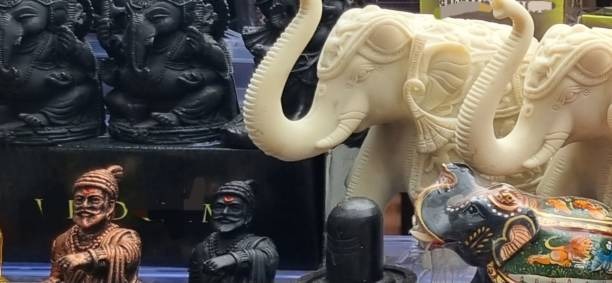Cremation services in Delhi have become an accessible and dignified option for many families seeking respectful final arrangements. These services are designed to manage every aspect of the cremation process, from ritual ceremonies to logistical support, ensuring a smooth and thoughtful experience during a difficult time. Reliable cremation services in Delhi offer timely, affordable, and comprehensive care, handling everything with respect and professionalism.
Many providers in Delhi now offer a range of cremation packages tailored to suit different needs, including traditional wood pyres and modern crematorium facilities equipped with up-to-date technology. Additional support such as priest services, floral arrangements, and transportation can also be arranged to meet cultural and personal preferences.
Choosing the right cremation service in Delhi involves considering factors such as proximity, pricing, and the level of care offered. Professional agencies focus on making the process as stress-free as possible, allowing families to honor their loved ones without unnecessary complications.
Overview of Cremation Service in Delhi
Cremation services in Delhi accommodate various religious customs and environmental considerations. The process is supported by clear regulations and offers alternatives to traditional burial, meeting diverse cultural and personal preferences.
Types of Cremation Services
Delhi offers several types of cremation to suit different needs. Traditional cremation uses timber to build a funeral pyre, following long-standing cultural and religious traditions.
Electric cremation is a modern alternative that uses electric furnaces, reducing wood consumption and pollution.
Green cremation, also known as environmental cremation, focuses on minimizing carbon emissions and uses eco-friendly methods such as bio-urns or water cremation.
Each type respects customs and offers options based on budget, environmental concerns, and family preferences.
How Cremation Works
Cremation begins with verifying the legal documentation, including the death certificate and cremation permit. The body is then prepared according to religious or cultural customs, which may involve specific rites or coverings.
In traditional cremation, the body is placed on a wood pyre and set alight. Electric and green cremations occur in controlled, enclosed chambers at specialized facilities.
The cremation process typically lasts 1 to 3 hours based on the method. Afterward, ashes are collected and returned to the family for final rites or dispersal.
Regulations and Legal Requirements
Cremation in Delhi requires compliance with municipal guidelines and environmental rules. Families must obtain a permit from local authorities and present a death certificate before cremation can proceed.
Facilities must adhere to pollution control norms, especially for traditional open-air cremations, to limit air quality impact. Some cremation centers operate 24/7 to meet demand while ensuring respectful handling of the deceased.
Proper documentation ensures the procedure is recognized legally and helps avoid delays or legal issues during the cremation process.
Cremation vs. Traditional Burial
Cremation in Delhi is often preferred over traditional burial for its faster process and reduced land use. Burial involves placing the body underground, which consumes more land and can require ongoing maintenance of grave sites.
Cremation is viewed as more environmentally sustainable when modern electric or green methods are used. It also aligns with certain religious views that discourage burial or promote the fast return of the body to nature.
Families choose based on religious beliefs, environmental concerns, and practical considerations like cost and space availability.
Finding and Choosing a Cremation Provider
Choosing a cremation provider involves understanding service quality, location, offerings, and budget. It requires careful evaluation of facilities and support to meet cultural, religious, and personal needs.
Key Factors to Consider
Location is crucial for accessibility to family and friends during ceremonies. Timely services that respect rituals are essential, as delays can cause distress.
Reputation and reviews provide insight into professionalism and reliability. Facilities should have up-to-date technology and maintain cleanliness and dignity.
The provider’s experience with specific religious rites and customs matters for families seeking culturally sensitive services. Transparency about costs and services helps avoid unexpected charges.
Popular Crematoriums in Delhi
Delhi has multiple cremation centers known for varied offerings. Notable ones include Paramoksha, Mukti, Kumar Funeral Service, and Last Journey, each emphasizing compassion and efficiency.
Some centers offer electric cremation technology, which provides a modern alternative to traditional pyres. This option may align with environmental concerns or personal preferences.
These crematoriums generally maintain 24/7 availability and prioritize quick arrangements, typically within an hour, ensuring timely final rites.
Costs and Packages
Packages usually include the cremation ceremony, transportation, and basic rituals. Prices vary based on location, technology used (traditional vs electric), and additional services.
Affordable options often cover essential rituals without extra amenities. Mid-range and premium packages may include floral arrangements, guided ceremonies, and extended support.
Explicit pricing is important. Families should request a detailed breakdown to compare providers and avoid hidden fees. Some providers offer customizable packages tailored to individual needs.
Support Services Offered
Many providers offer counseling and grief support to assist families emotionally. Professional handling of documentation such as death certificates and permits is common.
Additional services may include transportation of the body, decoration, and provision of priest or officiant services. Some centers arrange follow-up memorial options.
Reliable providers ensure clear communication, helping families understand each step. This support reduces confusion and stress during difficult moments.




Want to add a comment?